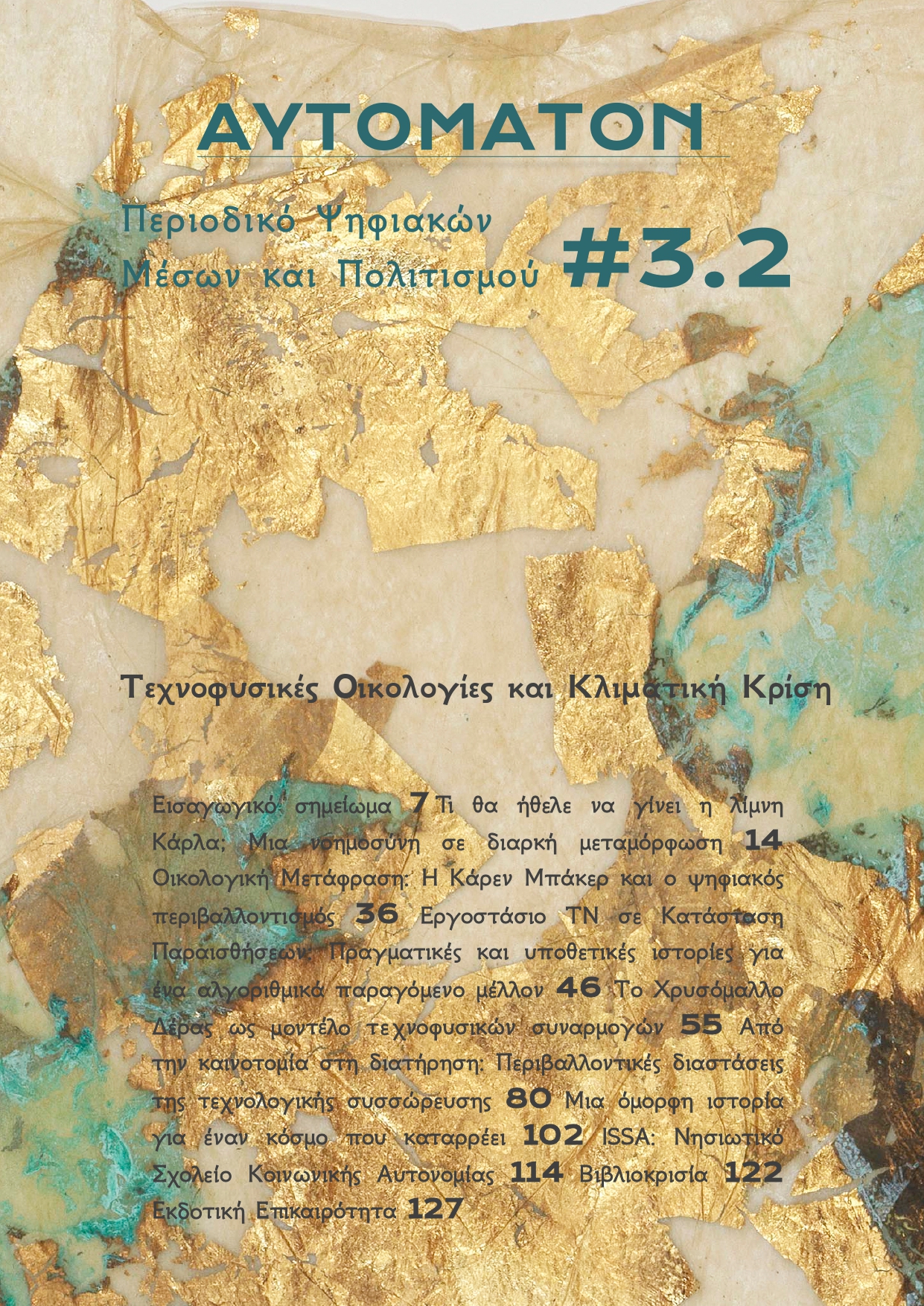What Would Lake Karla Want to Become? An Intelligence in Constant Metamorphosis

Abstract
The study examines Lake Karla as a dynamic and ambiguous landscape, where the concepts of uncertainty and liminality are central. Drawing on historical data and prompted by the current environmental crisis, Karla is analyzed as a site of negotiation between human and non-human agents, including ecosystems, artificial structures, technologies, and policy strategies. Artificial Intelligence (AI) operates as an “artificial observer,” reshaping knowledge about the landscape through geospatial data while simultaneously introducing new tensions by detaching from embodied and experiential realities. The analysis identifies how agents –ranging from the natural environment and local communities to sensors and algorithmic systems– co-create the lake’s identity and the intelligence of the landscape. Through an interdisciplinary approach, the study advocates for the adoption of ecological intelligence, recognizing uncertainty as a generative condition for sustainable management and reframing the question: “What would Lake Karla want to become?”
Article Details
- How to Cite
-
Kotionis, Z., & Sotiriou, I. (2025). What Would Lake Karla Want to Become? An Intelligence in Constant Metamorphosis. Αutomaton: Journal of Digital Media and Culture, 3(2), 14–35. https://doi.org/10.12681/automaton.42667
- Section
- Articles

This work is licensed under a Creative Commons Attribution 4.0 International License.
Authors wishing to publish articles in this journal agree to the following terms:
1. The Authors retain the Copyright and grant the journal the right of first publication while at the same time the copyright of the work is protected under the Creative Commons Attribution License which allows third party licensees to use the work as they wish provided they acknowledge the work's authorship and initial publication in this journal.
2. Authors may enter into separate additional contractual arrangements for the non-exclusive distribution of the published journal version of the work (for example, posting it to an institutional repository or publishing it in a book), with acknowledgment of its initial publication in this journal.
3. Authors are allowed and encouraged to post their work online before and during the submission process (e.g. on their website) as this can lead to productive exchanges as well as earlier and more citations of published work (See The Effect of Open Access).


